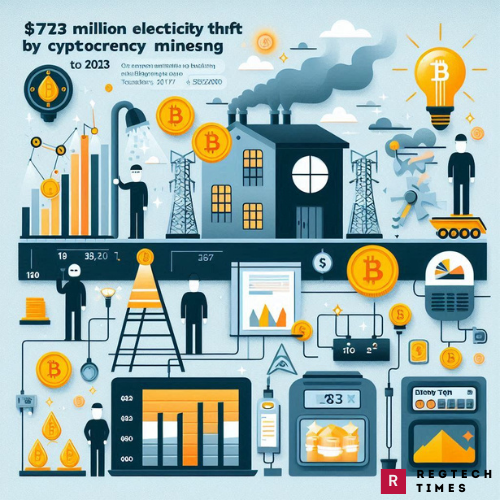Electricity theft through illicit cryptocurrency mining operations has become a significant challenge for Malaysia in recent years, resulting in the siphoning off of approximately $723 million worth of electricity between 2018 and 2023. This staggering revelation, highlighted by Malaysia’s Deputy Minister for Energy and Water, Akmal Nasrullah Mohd Nasir, emphasizes a critical issue at the intersection of technology, regulation, and energy security.
The Scale of Electricity Theft
Cryptocurrency mining, the process by which digital currencies like Bitcoin are created and transactions are verified using powerful computer hardware, requires substantial amounts of electricity. In Malaysia, unauthorized mining operations have taken advantage of loopholes in the electrical grid to illegally access and consume electricity. These operations often evade detection by bypassing metering systems, manipulating electricity meters, or directly tapping into power lines, thereby avoiding payment for the electricity consumed.
The repercussions of this illicit activity go beyond mere financial losses. It strains the capacity of local energy networks, disrupts service reliability for legitimate consumers, and poses safety risks due to unauthorized modifications to electrical infrastructure.
Government Response and Enforcement Actions
To combat this issue, the Malaysian authorities have taken decisive action. Since at least August 2019, there have been ongoing efforts to identify and dismantle illegal mining operations. These efforts culminated in a notable seizure operation in October 2022, where over 2,000 items, including Bitcoin mining machines and electrical equipment, were confiscated and subsequently destroyed. This proactive approach is part of Malaysia’s broader strategy to enforce existing laws that prohibit the use of stolen electricity for cryptocurrency mining.
Deputy Minister Nasir emphasized that these operations not only undermine the financial health of Tenaga Nasional Berhad, Malaysia’s state-controlled power operator, but also compromise the integrity of the national power grid. By cracking down on electricity theft associated with cryptocurrency mining, Malaysia aims to safeguard energy resources and ensure equitable access to electricity for all citizens.
Legal Stance and Regulatory Measures
Although cryptocurrency mining is legal in Malaysia, using stolen electricity to fuel these operations is considered a criminal offense. This distinction highlights Malaysia’s commitment to maintaining law and order in the digital age, ensuring that technological advancements within the cryptocurrency sector do not compromise the nation’s energy security.
Apart from intensifying efforts against illegal mining activities, Malaysian regulators have also focused on addressing unregistered cryptocurrency exchanges. In a regulatory move in May of the previous year, the Securities Commission Malaysia mandated the closure of Huobi Global’s operations within the country for failing to comply with registration requirements. This action demonstrates Malaysia’s proactive stance in regulating digital asset exchanges to safeguard investor interests and ensure market transparency.
Promotion of Sustainable Energy Practices
Beyond law enforcement, Malaysia’s efforts are also geared towards promoting sustainable energy practices and supporting the transition towards renewable energy sources. By curbing electricity theft associated with cryptocurrency mining, the government aims to reduce financial losses, protect the environment, and encourage responsible energy consumption within the burgeoning digital economy.
The promotion of renewable energy sources not only enhances energy security but also aligns with Malaysia’s commitments under international agreements such as the Paris Agreement. It highlights Malaysia’s role in mitigating climate change impacts and fostering a sustainable future for its citizens.
The proactive measures undertaken by Malaysian authorities serve as a model for other nations grappling with similar challenges posed by the rapid growth of cryptocurrency technologies. The effective enforcement of regulations not only mitigates financial risks associated with electricity theft but also fosters a conducive environment for technological innovation and economic growth.
Looking ahead, Malaysia remains committed to refining its regulatory frameworks to keep pace with advancements in the cryptocurrency sector while safeguarding national interests. This includes continued vigilance against illicit activities that threaten energy security and the overall integrity of the financial system.
Malaysia’s battle against electricity theft in cryptocurrency mining is a testament to the government’s resolve to uphold regulatory standards amidst technological advancements. By addressing these challenges head-on, Malaysia not only protects its energy resources but also lays a foundation for sustainable development in the digital era. The ongoing efforts to combat electricity theft in cryptocurrency mining reflect Malaysia’s proactive approach to maintaining energy security, fostering innovation, and safeguarding public interests in the digital age.


